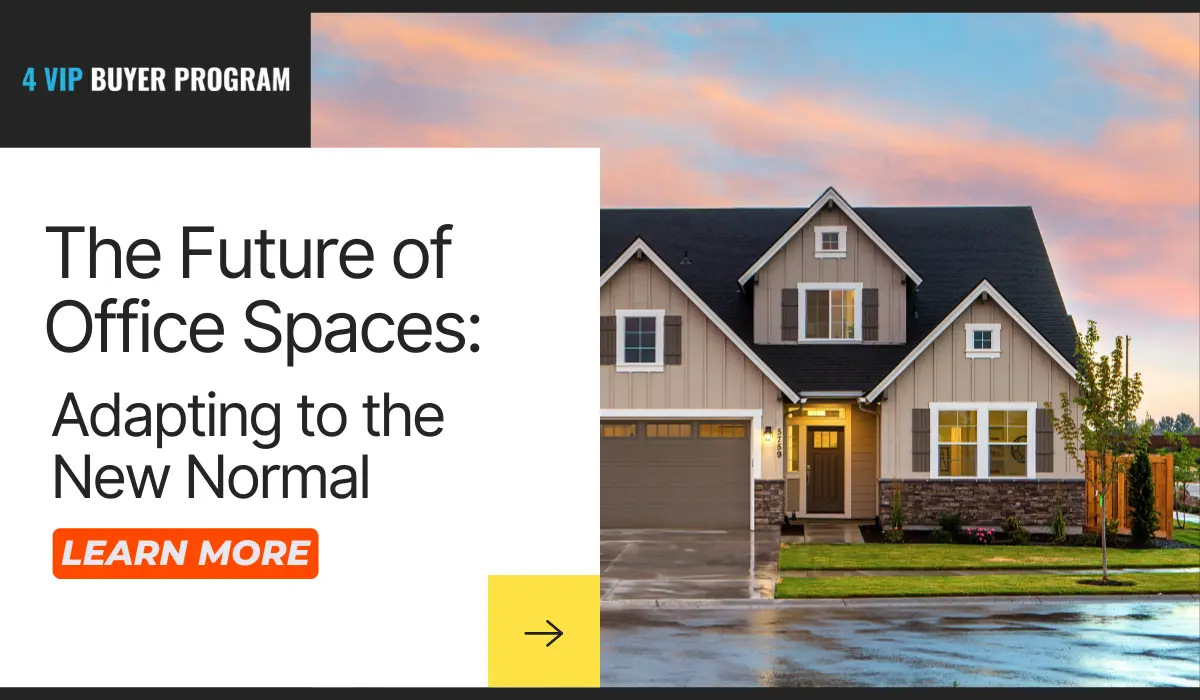The Future of Office Spaces: Adapting to the New Normal
The global pandemic has dramatically reshaped our lives, particularly in how we work and interact within office environments. The seismic shifts brought on by the global pandemic have irrevocably altered the landscape of the workplace, propelling us towards a future where the concept of office spaces is being redefined.
The concept of the traditional office space has been challenged and reimagined, leading to significant changes that are likely to persist in the foreseeable future. As we move into this ‘new normal,’ the future of office spaces is evolving to meet changing demands for flexibility, technology integration, and well-being. A reputed real estate company in Newhall helps businesses with office spaces that let them adopt the new norm.
This blog delves into these transformations, exploring how office spaces are adapting and what this means for businesses and employees alike.

The Evolution Towards Hybrid Work Environments
The landscape of the modern workplace is undergoing a radical transformation, primarily driven by the shift towards hybrid work models. This evolution marries the autonomy of remote work with the dynamic synergy of traditional office settings, offering employees the liberty to choose where they work based on their tasks, projects, or personal preferences. To accommodate this shift, organizations are reimagining their physical spaces. They’re moving away from a one-desk-per-person model to more fluid environments that prioritize communal areas designed to foster collaboration, innovation, and social interactions on the days employees are in the office.
Enhanced Design for Adaptability and Teamwork
In response to the changing function of office spaces—from places of individual work to hubs of teamwork and creativity—the architecture and interior design of these spaces are also transforming. The adoption of open layouts, shared workstations, and versatile, modular environments supports this new way of working. These spaces are intended to be easily customizable to fit the fluctuating demands of different teams and projects, thereby underlining the importance of adaptability in the modern workplace.
Prioritizing Health and Wellness in Design
The health and well-being of employees have taken center stage in the design of future office spaces, especially in the wake of the global health crisis. Office designs now frequently feature enhancements aimed at supporting both physical and mental health, including better air circulation systems, more access to natural daylight, and the incorporation of plant life and other natural elements through biophilic design principles. These elements are believed to not only improve health outcomes but also to boost productivity and job satisfaction.
Reconsidering the Strategic Importance of Office Locations
The decentralization of office locations is another trend shaping the future of workspaces. The feasibility of remote work has diminished the necessity for businesses to be situated in premium urban centers, leading to an increased interest in suburban or even rural office setups. These alternatives offer benefits such as reduced commute times and proximity to nature, which can significantly enhance employees’ quality of life and, by extension, their productivity and loyalty to the company. A reputed real estate company in Newhall helps businesses with such office spaces that let them adopt the new trend.
Integrating Advanced Technology for Enhanced Workplace Safety and Collaboration
The integration of cutting-edge technology is vital for the post-pandemic office, ensuring safety and facilitating seamless collaboration between on-site and remote team members. Innovations such as touchless interfaces, sophisticated air purification systems, and smart occupancy monitoring help in creating a safer work environment. Concurrently, the deployment of robust collaborative platforms and digital tools is essential for maintaining effective communication and ensuring that all team members, regardless of their location, can contribute meaningfully to their projects.
Fostering Community and Cultural Connectivity
As the frequency of in-person interactions decreases in hybrid models, designing spaces that nurture community and organizational culture has become increasingly crucial. Amenities like communal cafes, relaxation areas, and open-air spaces are instrumental in promoting informal meetups and conversations, thereby fostering a sense of belonging and sustaining company culture in a dispersed work environment. These communal spaces play a key role in keeping team spirit alive and ensuring that employees feel connected to the larger organizational ethos.
Embedding Sustainability into the Office Ethos
Sustainability is now a fundamental aspect of office design, reflecting a broader commitment to environmental responsibility and employee well-being. Features like energy-efficient systems, the use of recycled materials, and initiatives aimed at reducing carbon footprints not only mitigate environmental impact but also contribute to creating more healthful and inviting workspaces. Progressive companies recognize that sustainable practices enhance their attractiveness as employers and positively affect their profitability and brand image.
Adapting for the Future
Looking ahead, it’s evident that the concept of the office is being fundamentally redefined. Success in this new era requires businesses to remain flexible and responsive to their employees’ evolving needs, crafting office spaces that not only facilitate productivity but also support well-being, community, and sustainability. The office of the future will serve as a multifaceted space that reflects and accommodates the diverse ways in which work is conducted, emphasizing the importance of adaptability, employee-centric design, and a holistic approach to workplace well-being.
Conclusion
In wrapping up, the future of office spaces is a testament to adaptability and innovation in the face of the new normal. This evolution signifies a shift towards environments that are not just about physical locations but about creating a supportive, flexible, and health-focused culture. The move to hybrid models, enhanced technology integration, and a stronger emphasis on sustainability highlight a collective effort to meet employee needs while fostering productivity and well-being.
Businesses that navigate these changes effectively will set new benchmarks for workplace excellence, demonstrating that it’s possible to balance efficiency with employee satisfaction. A reputed real estate company in Newhall helps businesses with office spaces that let them adopt the change. Ultimately, the shift we are witnessing is more than a response to a temporary crisis; it’s a forward-looking approach that will shape the future of work for years to come, making offices a place where people and businesses thrive together.
